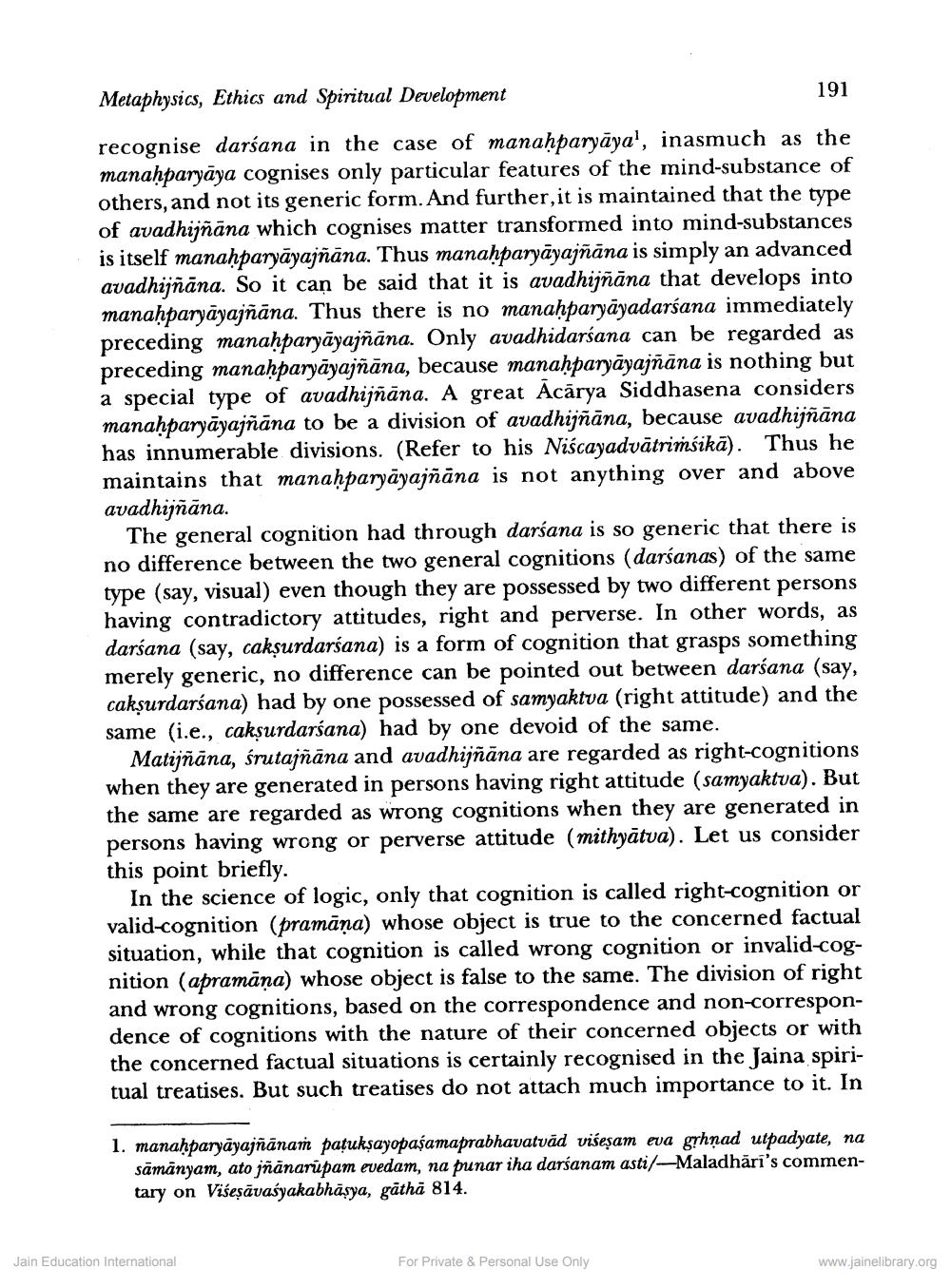________________
Metaphysics, Ethics and Spiritual Development
191
recognise darśana in the case of manaḥparyāya', inasmuch as the manahparyāya cognises only particular features of the mind-substance of others, and not its generic form. And further, it is maintained that the type of avadhijñāna which cognises matter transformed into mind-substances is itself manahparyāyajñāna. Thus manahparyāyajñāna is simply an advanced avadhijñāna. So it can be said that it is avadhijñāna that develops into manahparyāyajñāna. Thus there is no manahparyāyadarśana immediately preceding manaḥparyāyajñāna. Only avadhidarśana can be regarded as preceding manaḥparyāyajñāna, because manaḥparyāyajñāna is nothing but a special type of avadhijñāna. A great Ācārya Siddhasena considers manahparyāyajñāna to be a division of avadhijñāna, because avadhijñāna has innumerable divisions. (Refer to his Niścayadvātrimśikā). Thus he maintains that manahparyāyajñāna is not anything over and above avadhijñāna.
The general cognition had through darśana is so generic that there is no difference between the two general cognitions (darśanas) of the same type (say, visual) even though they are possessed by two different persons having contradictory attitudes, right and perverse. In other words, as darśana (say, cakşurdarśana) is a form of cognition that grasps something merely generic, no difference can be pointed out between darśana (say, cakṣurdarśana) had by one possessed of samyaktva (right attitude) and the same (i.e., cakşurdarśana) had by one devoid of the same.
Matijñāna, śrutajñāna and avadhijñāna are regarded as right-cognitions when they are generated in persons having right attitude (samyaktua). But the same are regarded as wrong cognitions when they are generated in persons having wrong or perverse attitude (mithyātva). Let us consider this point briefly.
In the science of logic, only that cognition is called right-cognition or valid-cognition (pramāna) whose object is true to the concerned factual situation, while that cognition is called wrong cognition or invalid-cognition (apramāņa) whose object is false to the same. The division of right and wrong cognitions, based on the correspondence and non-correspondence of cognitions with the nature of their concerned objects or with the concerned factual situations is certainly recognised in the Jaina spiritual treatises. But such treatises do not attach much importance to it. In
1. manaħparyāyajñānam patukşayopažamaprabhavatvād višeşam eva gyhnad utpadyate, na
sāmānyam, ato jñanarūpam evedam, na punar iha darśanam asti/-Maladhari's commentary on Višeşāvasyakabhāsya, gathā 814.
Jain Education International
For Private & Personal Use Only
www.jainelibrary.org




